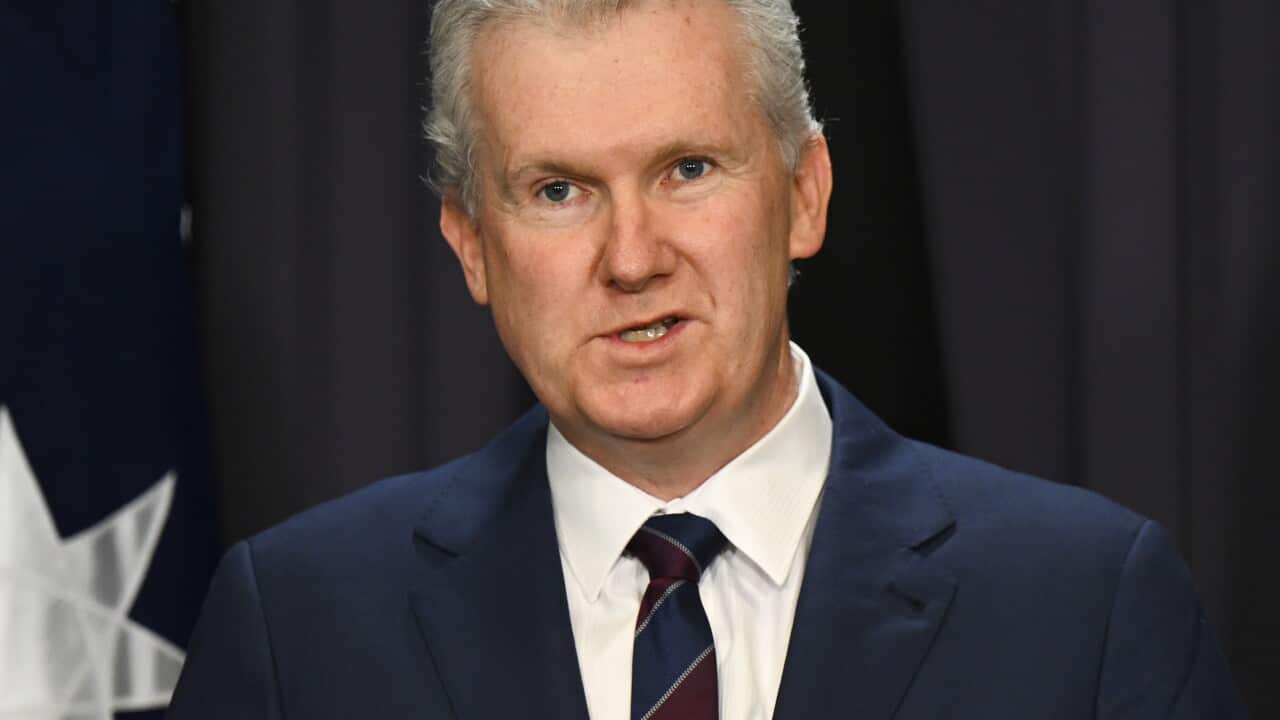Key Points
- A new report has found 'disadvantaged' jobseekers spend an average of five years looking for work.
- Unemployment may be low but those with less experience or qualifications struggle to get entry level jobs.
- Almost 100,000 Australians in this group are looking for work, with the number hardly shifting in five years.
Ronnie Ware has spent about five years trying to get a job.
The 25-year-old - who has autism - isn’t alone, according to a new report released today, which says while unemployment rates may be low, the Australian jobs market is locking out a section of the community.
Anglicare Australia’s Jobs Availability Snapshot found “disadvantaged” jobseekers spend an average of five years looking for work as higher skilled jobseekers apply and compete for entry-level jobs.
The report looked at work opportunities for people with barriers to work, such as older workers who have lost their jobs later in life, people who did not finish year 12, or people living with disabilities.
Anglicare executive director Kasy Chambers said the current system was failing those who need the most help to find work.
“Our snapshot shows that almost 100,000 Australians in this situation are looking for work, that number has barely budged in five years - the same people are being left behind each year,” she said.
The report measured how many jobs were available for people who don’t have qualifications or work experience, using data from the government’s Jobactive program.
Under Jobactive, which has since rebranded to Workforce Australia, a network of organisations are contracted to deliver employment services to unemployed jobseekers on government income support payments.
Ms Chambers said people in this situation need entry-level jobs “to get their feet on the ladder”.
“But there aren’t enough to meet demand in any part of the country. Across Australia, there are 15 jobseekers competing for each entry-level role. People with barriers to work barely stand a chance,” she said.
“Even in a surging market, the same people are missing out. The right jobs aren’t there for the people who need them.”
A tough job search
Securing work was not easy for Mr Ware, who lives in Adelaide. His autism made concentrating at school difficult so he left before finishing year 12.
He said, “social stuff is a bit weird” for him and he found applying for jobs and doing job interviews difficult.
While he had a trial at a grocery store and was hopeful about different roles at different times, he said nothing “stuck”.
Last year, Mr Ware was presented with an opportunity to work in aged care through his job provider, and to also complete a Certificate III in Individual Support.
The innovative initiative coordinated by Purple Orange, an organisation that hopes to bring voice to people living with disabilities, brought together aged care providers with disability employment providers to offer traineeships for people living with disabilities.

The aged care sector is facing a shortage of care workers into the future. Source: Getty / Dean Mitchell
He completed his traineeship and accepted a permanent part-time role as an activity assistant in September.
A newfound passion
Mr Ware said while he was unsure about what it’d be like to work with elderly people, some who live with dementia, he now loves working with his clients and his job is what gets him up in the morning.
“Of course there's ups and downs, but it's very rewarding to kind of make a difference in their lives and improve the moods of not just the clients, but their families as well,” Mr Ware said.
He said he feels like at times his autism is an advantage in his work as it helps him relate to some of his clients.
“Because I'm reading all the nonverbal cues and I'm kind of putting it piece by piece together, I just have that other perspective on everything,” Mr Ware said.
His confidence has been given a huge boost and Mr Ware said he was also feeling good about earning money. He said there is definitely a need for more creative approaches to provide employment opportunities for more people.
Mr Ware said the education system, employers and job providers needed to take into account that different people learnt differently.
“Just give everybody a chance,” he said.
Call for employment services system overhaul
Anglicare has called for more government assistance to help people who have been out of work long-term.
“Our snapshot shows that we need to overhaul Workforce Australia. This system props up private employment providers and costs taxpayers millions each year, but it is failing at getting people into work," Ms Chambers said.
“We need to create entry-level opportunities for people in growing industries – like aged and disability care.
“And we need to lift jobseekers out of poverty. Nobody should be trapped in poverty while they look for work.
“The new [Labor] government is already reviewing the system. That's a good start. Our hope is that they will work with us to build a system that helps people, instead of leaving them behind,” Ms Chambers said.
In August, Minister for Employment and Workplace Relations Tony Burke announced the government would establish a Select Committee of the House of Representatives to examine the implementation of Workforce Australia.
While Labor supported the Workforce Australia changes introduced under the former Coalition government, Mr Burke said the current government was concerned the country had “ended up with a system that is driven more by the details of contracts with providers than the legislation the previous government brought to Parliament”.
The committee is expected to report back to parliament in September 2023.












